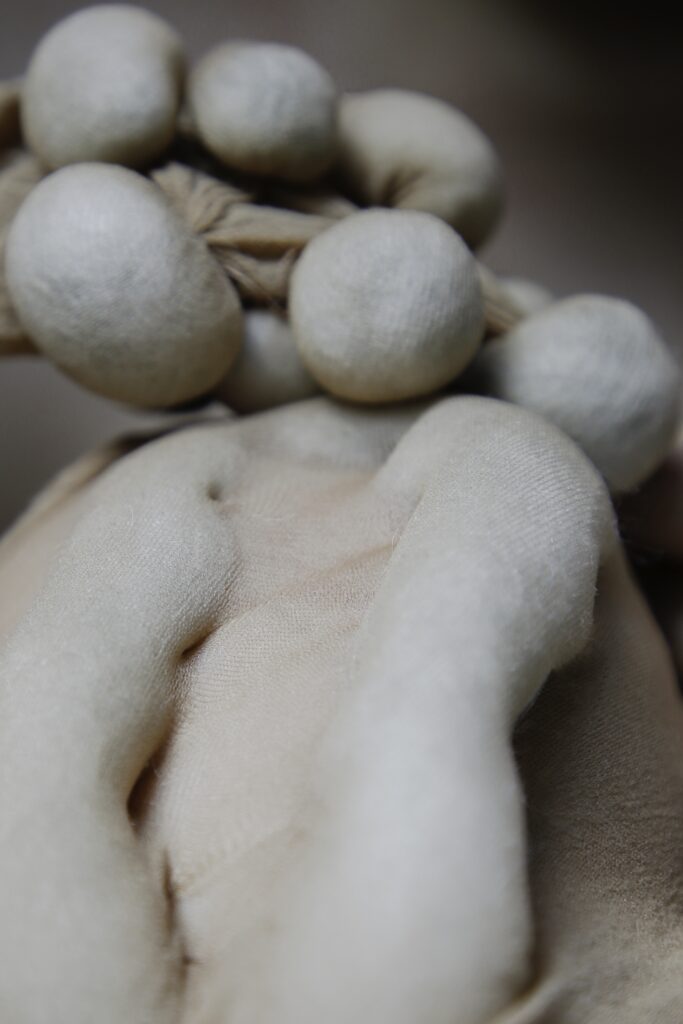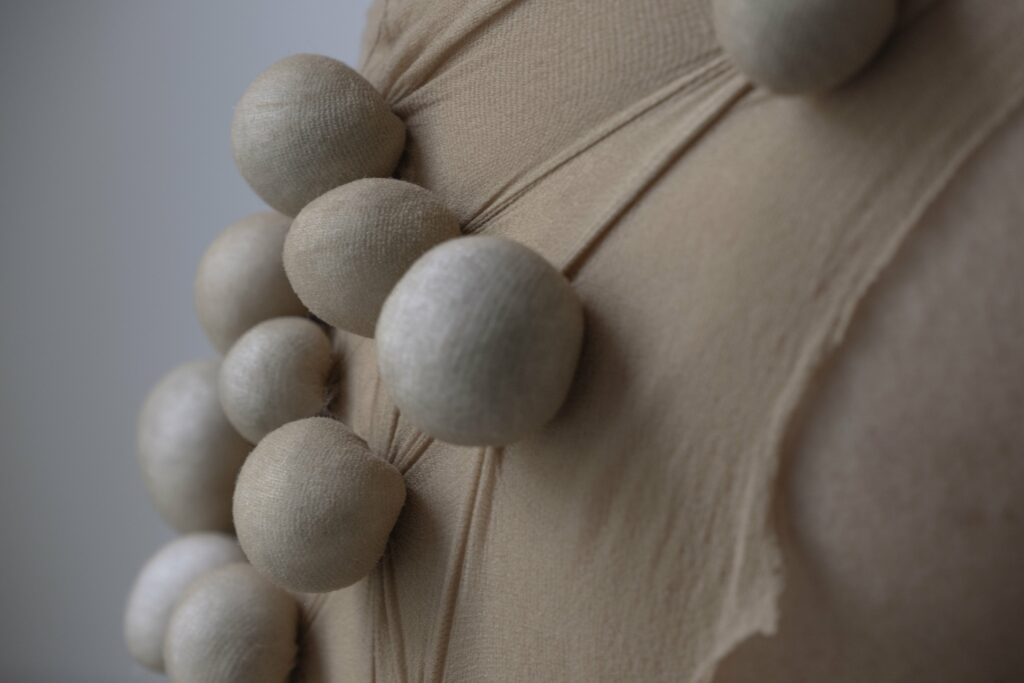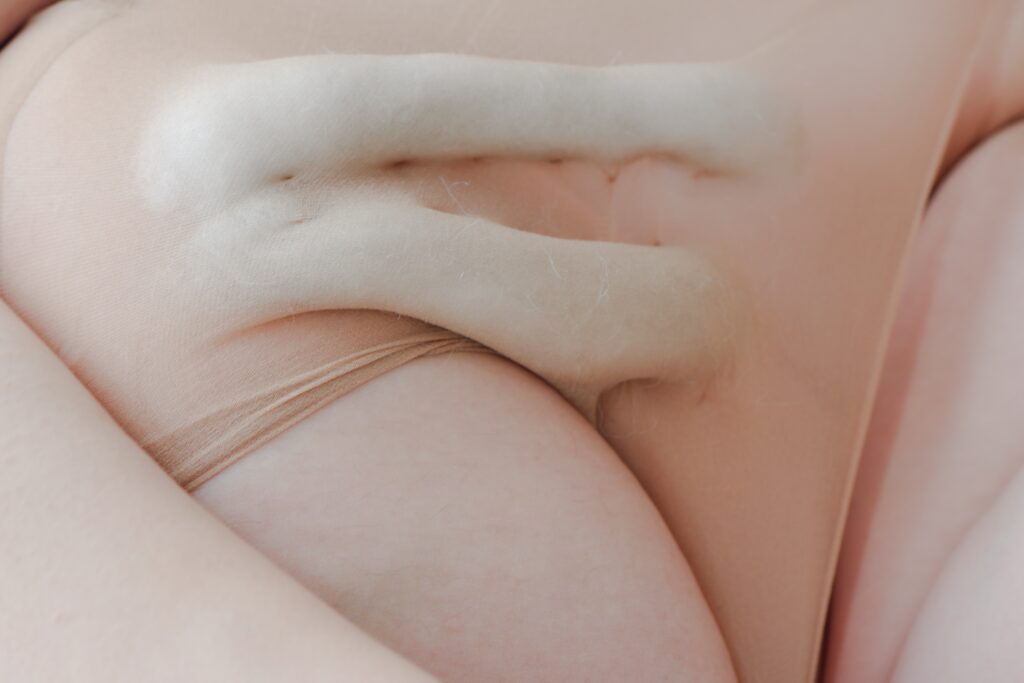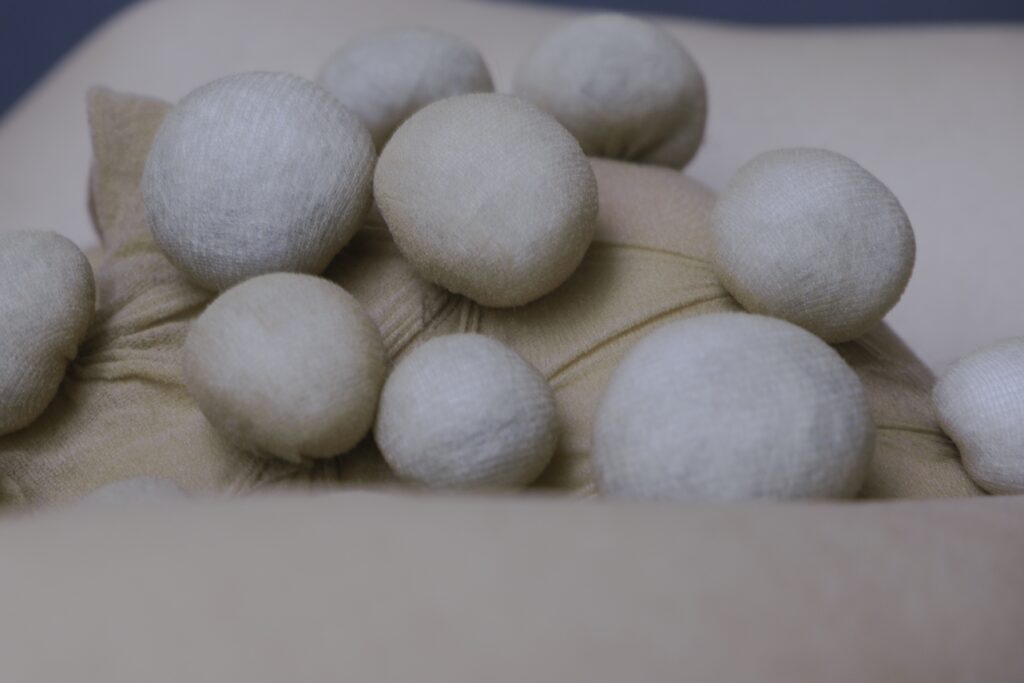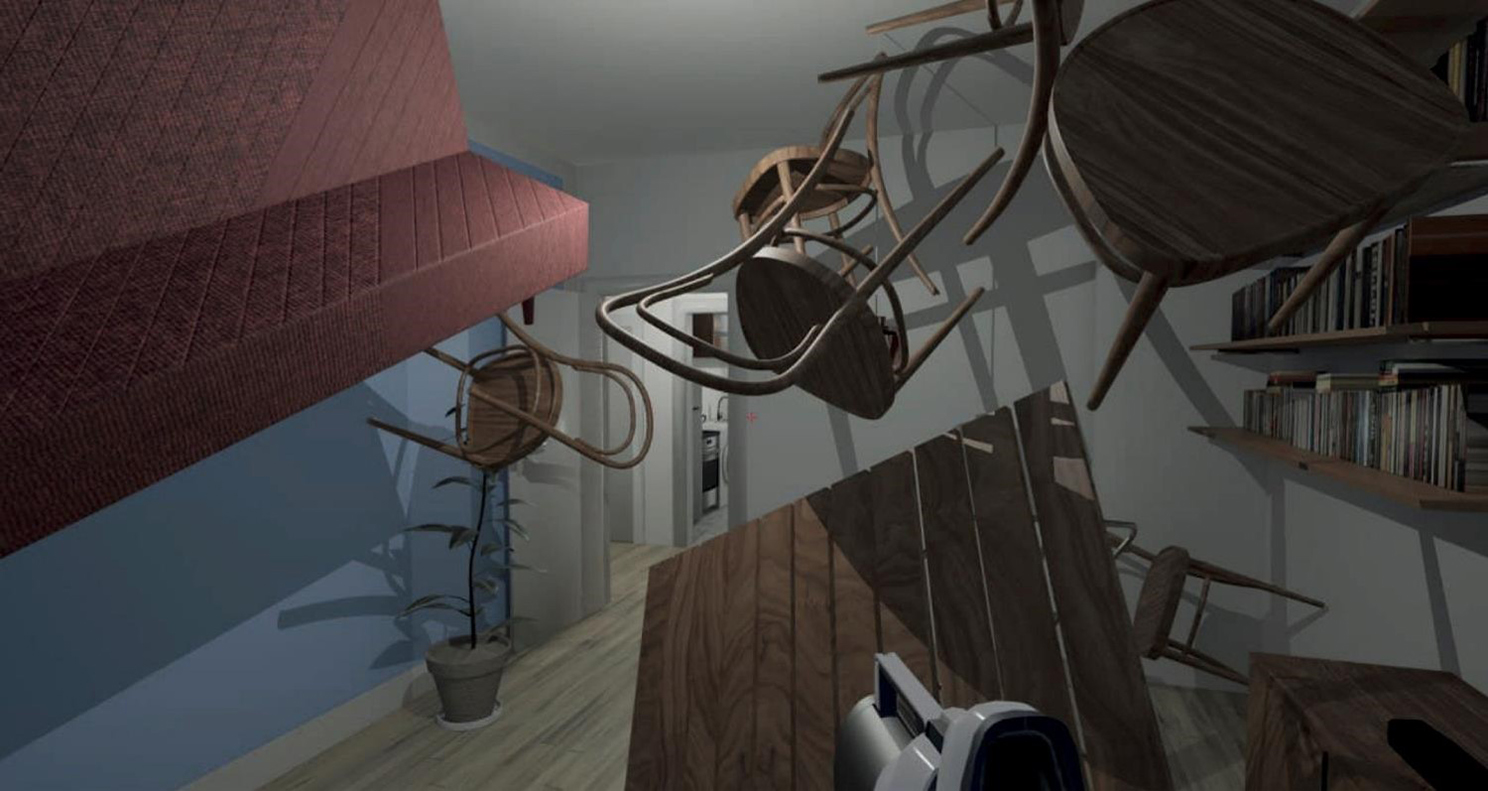URFIND, WS 20/21
SCENARIO
Tactile perception is not just the surface sensitivity of the skin, but a reaction of existence.
In the year 2120, brain and computer are working together. BMI (Brain-Machine Interfaces) has enabled entire societies to organize their members in the manner of an algorithm. Everything can now happen much faster and more efficiently. People adapt completely to BMI and can store all kinds of information in their heads in seconds, in order to
z. For example, to master a language or to read books. But at the same time, BMI's algorithms know not only exactly how you feel, but countless other things about you that you hardly think possible. Accordingly, people should no longer be guided by their feelings, but by these external algorithms. They support them in their pursuit of pleasant sensations, while the tolerance for unpleasant sensations decreases more and more.
Happiness, happiness, happiness ...
Due to the long use of BMI, the human body has become unimportant, everything is concentrated on the head. Its sense organs, eyes, mouth, nose and ears, continue to be used intensively, and sense of sight, sense of smell, sense of taste and sense of hearing are constantly stimulated. But the skin, actually the largest organ of the human being, which contains millions of touch receptors and forms the body's boundary with the outside world, has been forgotten. When the human brain becomes independent of the body, people also stop touching each other and lose tactile perception.
This is exactly what has happened, but now some realize that they are missing something and panic. Can they actually still exist as humans like this? Can the loss be reversed and the sense of touch reactivated?
Fortunately, a group of people long ago escaped the care of BMI and today lead a secluded life in which the natural sense organs continue to be used and play an important role. They are considered deviants by the rest of society, even though there is practically no contact between them. They knew how important the sense organs are and now they experience from a distance the consequences of the use of BMI that they feared. It seems to be their destiny to help humanity find the sense of touch again. So they invent a surface and call it Urfind. Secretly they install it in cities and wait for something to happen.
CONCEPT
When you touch these contact surfaces, you can reacquaint yourself with your sense of touch. The soft fluffy surface, the flickering and vibrations that come out when you touch them, and you feel and see their reactions. Little by little, your senses are stimulated and you lose your shyness to communicate with them and engage with your own sensations.
It's something quite unfamiliar, a different living surface, a different skin, something about which you experience a whole new exchange.
My project aims to design haptically stimulating contact surfaces for public spaces, inspired by natural models, that encourage people's tactile perception. In a culture, when encounter and physical contact with real living beings has been interrupted or increasingly overlaid by inhibitions, it would be important to first reopen one's senses.
Urfind offers the possibility to playfully experience tactile sensations, to expand them and to connect them with the feeling of one's own physical presence. We are invited to touch the soft 'skin' and feel the long-same pulse of movement and light. Depending on the force with which the surface is touched, it shows different reactions. Unexpected color changes and vibrations draw us into a sensual exchange with the object and detach our perception from the reduced, predetermined patterns with which we grasp our surroundings.
